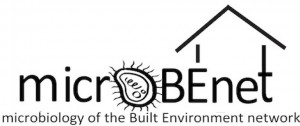The NY Times is reporting that an outbreak of Shigellosis in Flint may be connected to the water crisis there (in that people’s changes in their hand cleaning and other washing behaviors due to the water may have contributed to the outbreak). See the story (linked below) for more details. If true this is yet …
Just a mini post here. Got pointed to this press release of possible interest on a collaboration to study microbes on the space station and on other spacecrafts using single cell approaches: Source: NASA, Bigelow Laboratory Study Microbes on Spacecrafts – Bigelow Laboratory for Ocean Sciences
Public fungal sequence data are often not annotated to the degree desirable. This makes it difficult to zoom in on all sequences recovered from some particular country or some specific host. This holds true for the built environment as well – there is no straightforward way to target all fungal sequences generated from, say, bathrooms …
Worth checking this out I think. Source: Contributions of pioneering women in indoor environment and health – Nazaroff – 2016 – Indoor Air – Wiley Online Library From the introduction: On occasion, this journal has recounted historical achievements in the indoor air sciences. Sundell[1] provided a broad-ranging overview. I have written about the history of …
Microbes in subways Bioaerosols in the Barcelona subway system – X. Triadó-Margarit – Indoor Air ($6 to rent, $38 to own) (…) We examined the microbiological composition and abundance in space and time of bioaerosols collected in the Barcelona subway system during a cold period. (…) Multitag 454 pyrosequencing of the 16S rRNA gene was used to …
Definitely worth checking this out. Recent molecular studies have identified substantial fungal diversity in indoor environments. Fungi and fungal particles have been linked to a range of potentially unwanted effects in the built environment, including asthma, decay of building materials, and food spoilage. The study of the built mycobiome is hampered by a number of …
We are excited to announce that the Alfred P. Sloan Foundation will be sponsoring a symposium at the National Council for Science and the Environment (NCSE) Conference and Global Forum in Washington, DC from Jan 24-26, 2017 (http://www.ncseconference.org/). The 2017 conference has the theme “Integrating Environment and Health” and typically brings together between 1,000-1,200 attendees …
Proceedings of the Emory University’s May 2016 workshop on Legionella are now available online through the Emory Center for Public Health Preparedness and Research’s website (here) or on YouTube via Emory University’s official YouTube channel (here). Held on May 25 – 26, 2016 in Atlanta, GA, the workshop entitled “From Watersheds to Shower heads: A Workshop on Legionella” …
So last Spring quarter Ashley Vater and myself ran a class where we went from abalone feces swabs on the first day, to a draft of a Genome Announcement on the last day… written by the students. With 16 students in the class we ended up with 10 sequenced/assembled/annotated genomes. A full description and summary …
Interesting short new paper in arXiv: [1609.05763] Integrating citizen science with online learning to ask better questions Vineet Pandey, Scott Klemmer, Amnon Amir, Justine Debelius, Embriette R. Hyde, Tomasz Kosciolek, Rob Knight Abstract: Online learners spend millions of hours per year testing their new skills on assignments with known answers. This paper explores whether framing research questions …




